Social groups and activities for older people
Tags
Getting Out and About in Later Life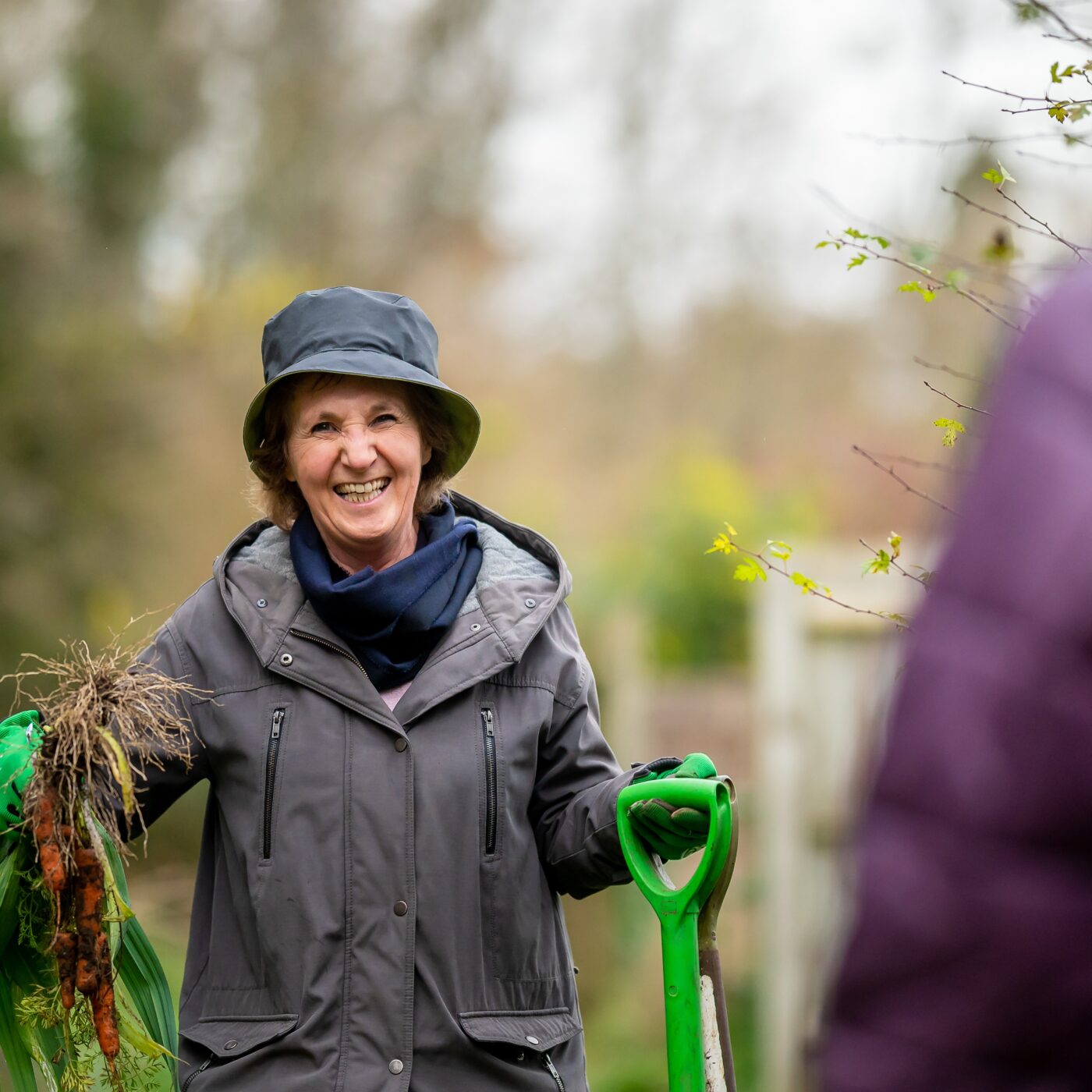
Factors such as retirement, the loss of a spouse, illness, death, and family members relocating can all lead to social isolation and poor mental health in later life. If you or a loved one is in this situation, there are various ways you can look after your current social relationships, and forge new ones.
When building friendships over 60, it can be helpful to remember that everyone is just a person like you, and there’s no need to feel nervous. Though there is no rulebook to follow, some general tips may help if you’re feeling anxious or out of practice.
Talking to new people
You don’t need to go out with the sole purpose of making new friends to feel the benefits of being social. Being open and friendly while out and about can both boost your mood and help you build confidence around people you don’t know. For example, research suggests that sharing a smile often makes people feel happier, and that challenging yourself into a bit of small talk with people you don’t know well can improve our overall well-being and help us learn something new too.
Of course, talking to new people is the first step in forming a friendship too, and the more approachable you appear, the more likely people will be interested in stopping and talking to you. Incorporating eye contact into interactions has been shown to create a sense of connection and similarity between strangers, which can ultimately foster the development of a deeper connection.
Find common interests for conversation
One method for feeling more confident in conversations with new people is to ask questions in order to find some common ground – this could be a shared interest, a particular experience, or a current event or news story that you’ve both heard about. Even the present moment can be a form of common ground to start from – for example if you’re in a park on a cold morning, why not start by talking about the weather?
Finding common ground requires good listening skills and being fully present in the moment. It’s important to ask questions in order to understand the other person’s point of view and show a genuine interest in what they’re saying. Don’t pry, or overshare about yourself, let a comfortable back and forth evolve naturally.
Don’t change who you are
The most effective method for making friends is to be genuine and seek common interests with those you encounter.
It’s normal to experience some nervousness initially, but being true to yourself is important. Your new acquaintances will value you for who you truly are, and you will find greater contentment in the future by embracing your individuality.
Utilise your existing connections
One way to expand your social network over 60 is by asking for introductions from your existing friends and family to their friends. Some ways to do this could include –
- Ask whether there’s space to join a social club they’re in, such as an art class or book club
- Offer to host some lunch, or a spot of tea and cake and make it an open invitation
- If you’re a grandparent, going along to pick them up from school can be a great opportunity for casual conversation with parents and grandparents
Having a friend or family member with you can provide support and take some of the weight of the conversation if you’re feeling anxious.
It’s also important to make the most out of connections you already have, as you may have a shared love with someone you’re already familiar with – you just might not know it yet. For example, if your neighbour is always tending to their garden, complement them on it, or ask a question about a particular plant or flower. If you get the bus into town the same time each day as someone else, strike up a conversation while you wait, or ask if they’d like to get a cup of coffee when you get to town.
Remember, the person you approach may also be feeling lonely, and really appreciate you taking the first step. Even if you speak to someone and it’s obvious you won’t form a friendship afterwards, feel proud that you tried.
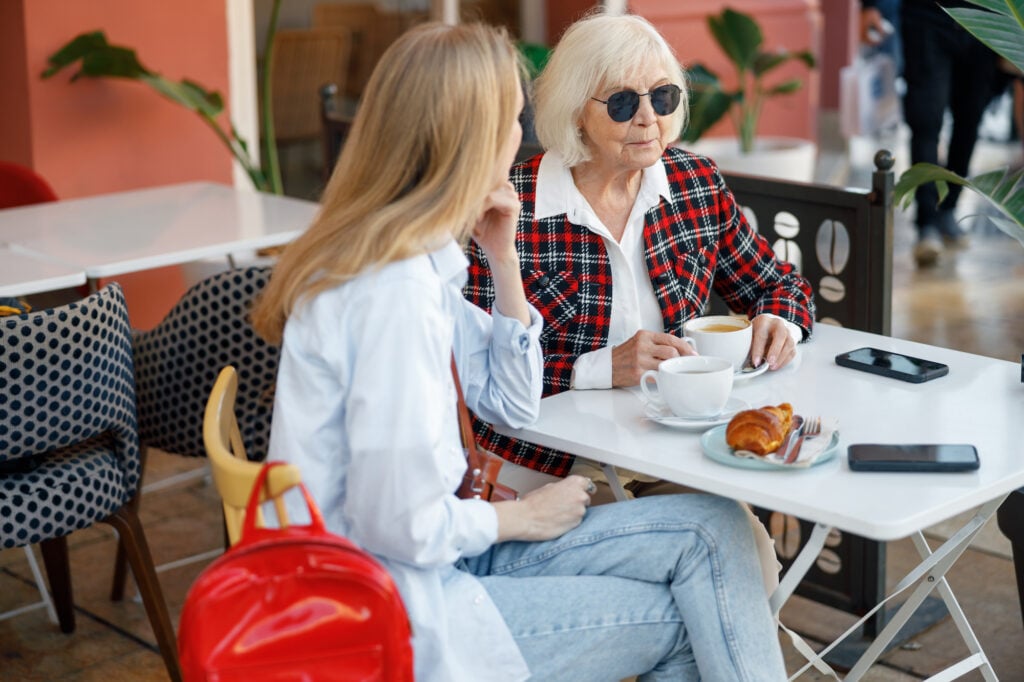
What social activities can I try?
One effective method for making new friends over the age of 60 is to pursue a new hobby or personal interest. Regularly committing to a new hobby will increase the likelihood of meeting like-minded individuals with the same hobby. Once a group of friends with similar hobbies is established, there’s a high chance it will lead to strong bonds, mutual connections, more social events to attend and a better quality of life.
Walking clubs
Walking outside can be beneficial as it provides physical activity, boosts endorphins, and can be easily incorporated into daily life. It can also be a pressure-free opportunity to make friends, as exploring somewhere new and taking in the scenery can help fill any silences. Some communities even offer transportation for group walks in nearby parks or walking paths. You can suggest walking to explore new places with the family to bond too.
The Ramblers
The Ramblers is a convenient resource for finding a walking group near you. Visit their website and enter your postcode or location to discover various local walking groups to join.
Every year, approximately 300,000 individuals participate in Ramblers’ organised walks, including many older adults. Members have the opportunity to join walks across the country, and new walkers are always greeted with hospitality.
Time Outdoors
Time Outdoors is an organisation that facilitates finding walking clubs for people over 50 in your local area.
Similar to The Ramblers, you can enter your location on the website, and you’ll be provided with a map displaying walking clubs in your local area.
Gardening Clubs
Gardening can be an enjoyable and beneficial activity for seniors – it has also been found that gardening activities in older adults improve motor skills, and concentration and decreases negative emotions. It provides an opportunity to spend time outside, stay active, and connect with others. Digging, planting, and weeding can promote relaxation and allow us to see the results of our efforts in the form of beautiful flowers or vegetables.
The Royal Horticultural Society (RHS) has a postcode search where you can find local gardening clubs and communities close to you.
The Hardy Plant Society comprises 40 local groups across England, Scotland, and Wales. Members gather regularly to participate in various activities such as listening to expert speakers, organising garden visits, and exchanging seeds or plants. Additionally, national events are held multiple times each year, including study days or visits to gardens that are not typically accessible to the public.
The National Garden Scheme. This is a great way to meet gardeners in your local neighbourhood. Every year over 3,500 people open up their own gardens to the public – often serving up refreshments to raise money for charity too. It’s a great way to introduce yourself to your neighbours and have a natter about gardening.
Get back to school and learn a new skill
No matter your age, you can continue learning by enrolling in various classes and courses, many of which are free.
There are several advantages to learning and acquiring a new skill after the age of 60. One advantage is that it can aid in maintaining cognitive sharpness and mental engagement. Furthermore, learning a new skill can contribute to personal growth and help us stay more physically active, which is crucial for overall health and well-being.
Today, there are many different ways to learn – classes are available in various formats, including part-time, full-time, online, and distance learning options. Many subjects are now really accessible, such as languages, photography, yoga, cooking, computer skills, jewellery making, and family history.
If you want to learn and be around new people, then finding courses in your local area is a great place to start:
- Local libraries have details of local courses, as well as computer facilities if you don’t have one at home
- Your local council can give you details of courses for adult learners in your area.
- The University of the Third Age (U3A) comprises local groups of older individuals who organise informal courses, study groups, and talks. Explore whether there are any groups in your area focused on subjects that spark your interest.
- Restless. offers a huge directory of free and paid for course in everything from languages, to learning the guitar, to flower arranging.
- Your local paper may also have details of things going on in your area, such as classes, workshops and talks.
- The National Careers Service offers information about career-focused courses, which can be helpful for people seeking a career change or wanting to advance in their current job.
Art and Crafts Classes
Crafts and painting can improve mental health and enhance mood. It’s a relaxing hobby that allows individuals to focus on creating and forget about other worries. This can naturally reduce stress, offering older people a welcome break – but painting can especially be a social activity with plenty of art classes, where you can share art, tips and mutual interests while creating new things together.
Art-K provides classes suitable for all levels, from beginners to those rekindling their love for art. Use their search bar to see if they have classes near you.
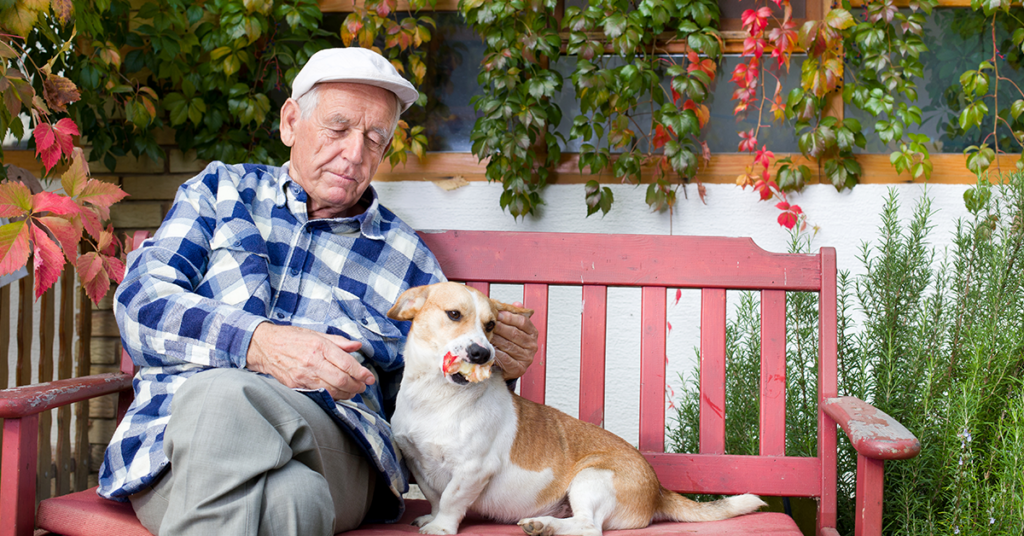
Get out with your dog
Dog owners enjoy numerous health and social benefits by walking their dogs. Benefits include improved cardiovascular fitness, lower blood pressure, stronger muscles and bones (built up by walking regularly), and decreased stress.
There’s an excellent community of dog lovers and owners in the world. Even taking a friend’s dog out for a walk will bring you into contact with all kinds of new people.
A dog is a fantastic conversation starter, loads of people are happy to stop to play with a puppy and have a chat. Community dog walking groups and dog training courses are very popular and fantastic for meeting like-minded people. Going out with friends to walk your dog is a fantastic social activity and can help if you feel anxious about walking somewhere new.
You may also meet new people with dogs by walking your dog at the same time every day in your local park, usually around lunchtime or after 5pm, when most people gather on the weekdays to exercise their dogs.
Join a gym
People often believe it’s too late to benefit from exercise when starting in middle age or older. However, studies have shown that it’s never too late to start reaping the rewards. For example, a study showed wheelchair users in their 80s and 90s experiencing improvements in strength and overall function from a weight-lifting programme.
If you’re feeling anxious about joining a new gym, don’t worry, they’re often supportive places as nearly everyone is there to improve their health and well-being.
If it’s within budget, getting a personal trainer can be someone to introduce you to the gym community, teach you valuable exercises, encourage you to keep a routine and may even become a friend for life.
Certain gyms, like Better, provide senior discounts and give you access to gyms in different locations, swimming pools and fitness classes. Better is also a charitable social enterprise that offers diverse fitness classes for individuals of all ages. These exercises encompass various areas of well-being, including mind and body, strength and conditioning, cardio, and dance.
Exercise Classes
Many gyms also offer exercise classes, which are included in your monthly membership, where you can bond with other people over the exercises.
Group exercises, such as yoga, tai chi, or Feldenkrais, can be effective and enjoyable ways to enhance flexibility and balance, which can be crucial for fall prevention in older individuals. Certain communities offer chair exercise classes, while others offer water aerobics programmes catering to seniors with arthritis.
Day Centres
Day community centres offer older adults a wide range of practical assistance and opportunities for socialising provided by trained staff and volunteers. Clients partake in a stimulating range of activities in a social club setting.
- Musical activities – such as, singing and playing instruments as a group
- Quizzes
- Lunch clubs
- Board games, jigsaw puzzles and card games
- Gentle exercise
- Creative activities such as arts and crafts
- Day trips
Some day centres offer other services, such as mobile supermarkets, assisted bathing, hairdressing and foot care.
Volunteer locally
Volunteering allows you to connect with like-minded people, gain new skills, and positively impact your community.
There are various options for volunteering that may spark your interest. Whether volunteering at a local food bank or participating in park clean-up efforts, numerous opportunities exist to build meaningful connections and contribute positively to your community.
To learn more about volunteering opportunities for individuals over 60, visit the Volunteering Matters website.
Using technology to connect with others
If you or a loved one has relatives or friends who live a long distance away, social media and video chat can help you to remain connected, share important moments, or feel supported if you’re feeling down. Video chat services such as Skype or Facetime can help you stay in touch with loved ones you cannot see in person as frequently as you and them like, While Whatsapp messaging a great for a quick daily check in or sharing photos.
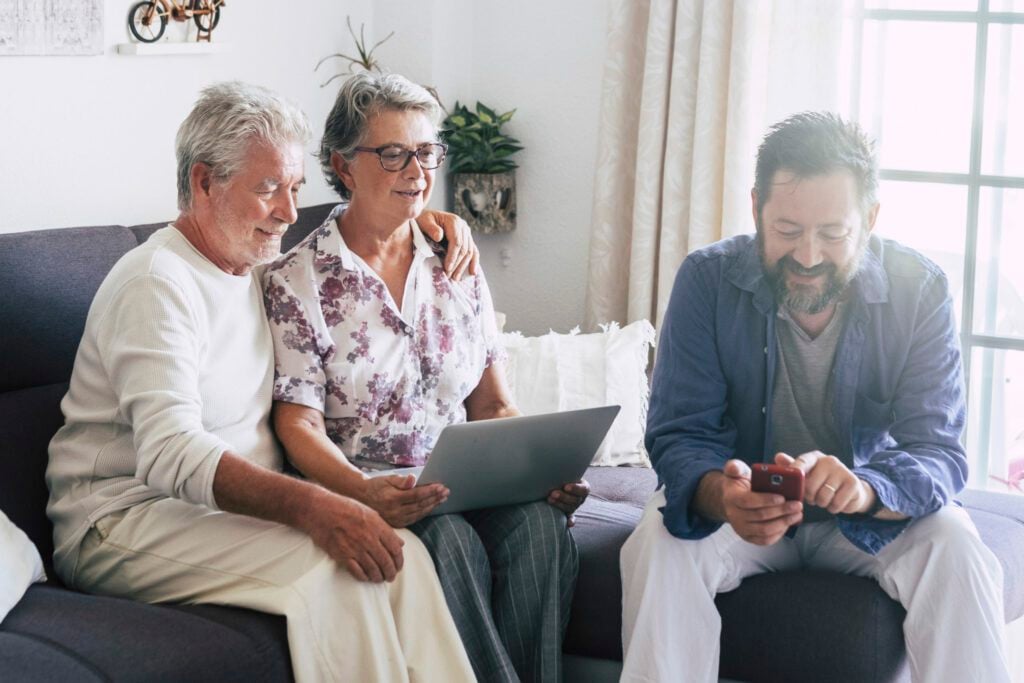
Learn how to use technology to socialise
If you need help with learning to use social technology, AbilityNet’s provide free digital skills training to support older people (65+ years) in London, Birmingham, Manchester, Glasgow, Edinburgh, Cardiff and surrounding areas.
Action for Elders offers one-to-one support to help you get online and stay connected. They also provide online guides to help you understand the jargon, chat online and how to shop safely.
Using technology to connect with others
If you or a loved one has relatives or friends who live a long distance away, social media and video chat can help you to remain connected, share important moments, or feel supported if you’re feeling down. Video chat services such as Skype or Facetime can help you stay in touch with loved ones you cannot see in person as frequently as you and them like, While Whatsapp messaging a great for a quick daily check in or sharing photos.
Websites for older adults to form new friendships
If you’re having difficulty making new connections in your community, consider using a friendship website designed for individuals over the age of 50. Online friendships can be equally valuable as offline friendships. In certain instances, they can be even more meaningful since you can widen your network and connect with individuals from around the globe.
Finding people with similar interests online is often easier than in real life because of the existence of various online communities dedicated to different interests.
Stitch.net is a community that aims to assist individuals over the age of 50 in finding community and companionship.
Silversurfers.com is a lifestyle site and social network catering to individuals over 60, offering entertainment, information, and a secure platform for connecting with similar individuals.
Seniorchatters.co.uk is a chatroom where people over the age of 50 can safely connect with others from around the globe and develop friendships.
50plus-club.co.uk is a website where individuals over the age of 50 can search for love, friendship, or local events to attend.
Meetup.com is a platform that creates groups between individuals with similar interests, allowing them to make new friends, for example, hiking meet-ups, book clubs, and cinema clubs for film buffs.
Nextdoor.co.uk is a website that’s designed to assist individuals in connecting with their neighbours, from borrowing tools to exchanging recommendations.
Read more care guides

How to prepare for a live-in caregiver
Care at home: how to prepare the home for a live-in caregiver A live-in carer can make a massive difference to your loved one’s quality
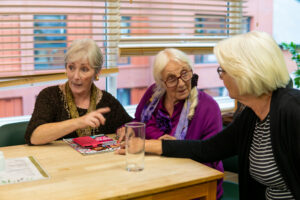
6 tips for finding the right live-in carer
Finding the right live-in carer is a significant and deeply personal decision, impacting your loved one and the entire family. You’re seeking someone trustworthy, compassionate,
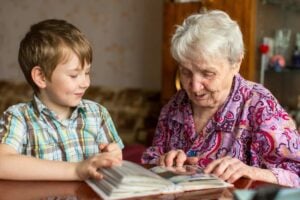
The cost of care – everything you need to know
The true cost of care – everything you need to know Discover the true cost of care and explore your funding options with our care

Understanding autism in older adults
While Autism is usually diagnosed in childhood, an increasing number of older adults are being formally diagnosed in later life. Masking autism symptoms can result

A guide to speaking with a loved one about home care
Why do older adults resist care? A guide to speaking with a loved one about home care Bringing up the topic of care at home

How to choose the right personal alarm for seniors: A comprehensive guide
Personal alarms for elderly Discover how personal alarms work, who they’re best suited to, and how they provide greater peace of mind to older people